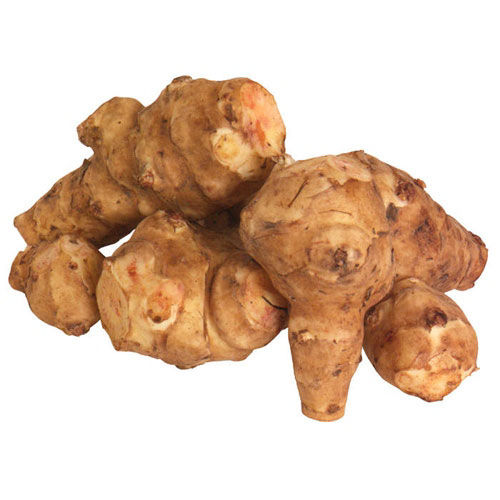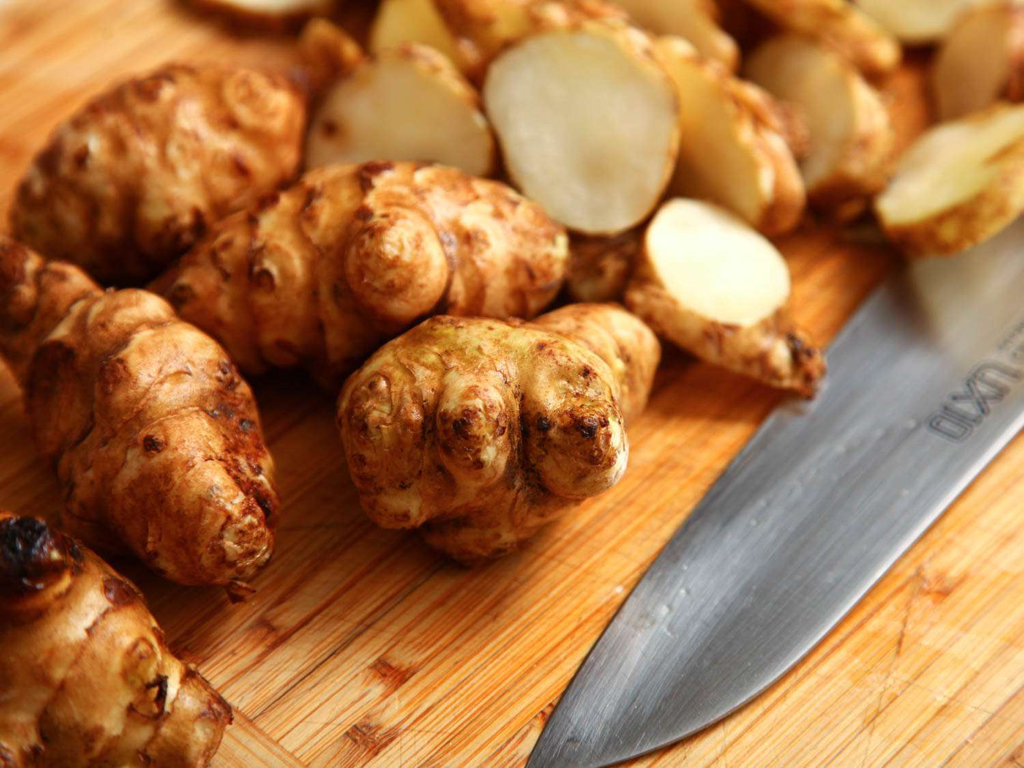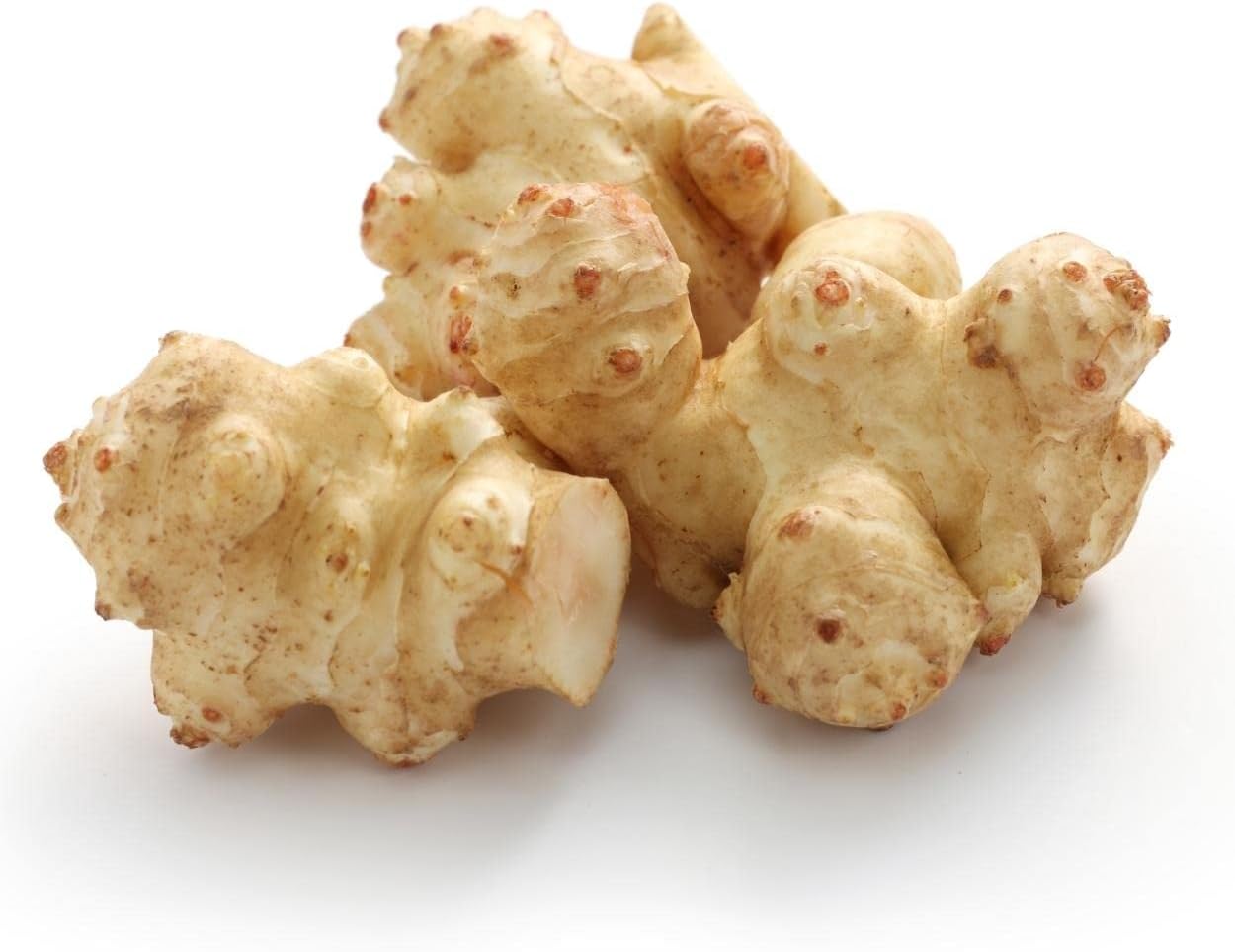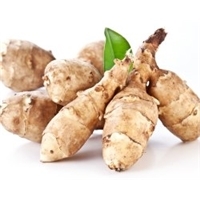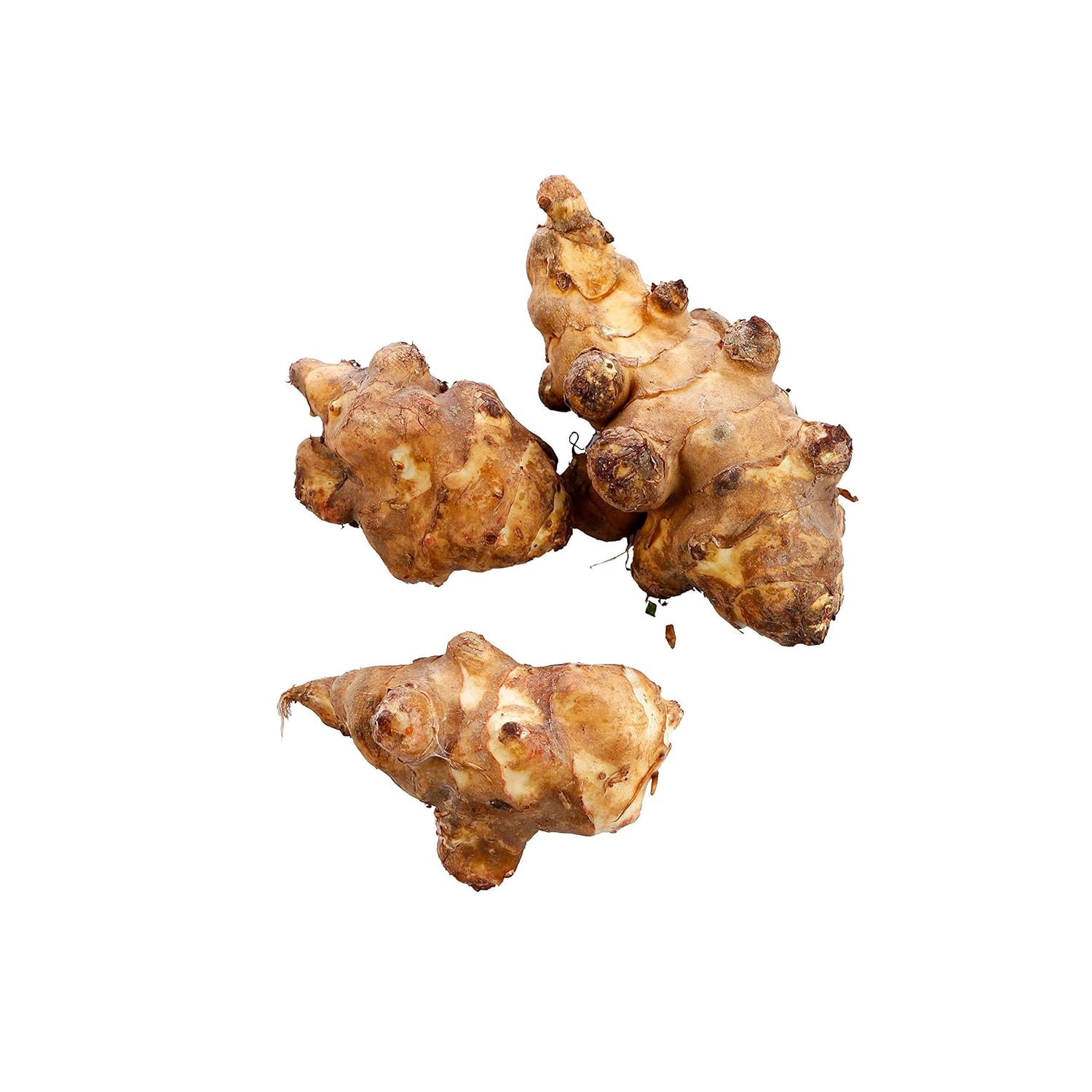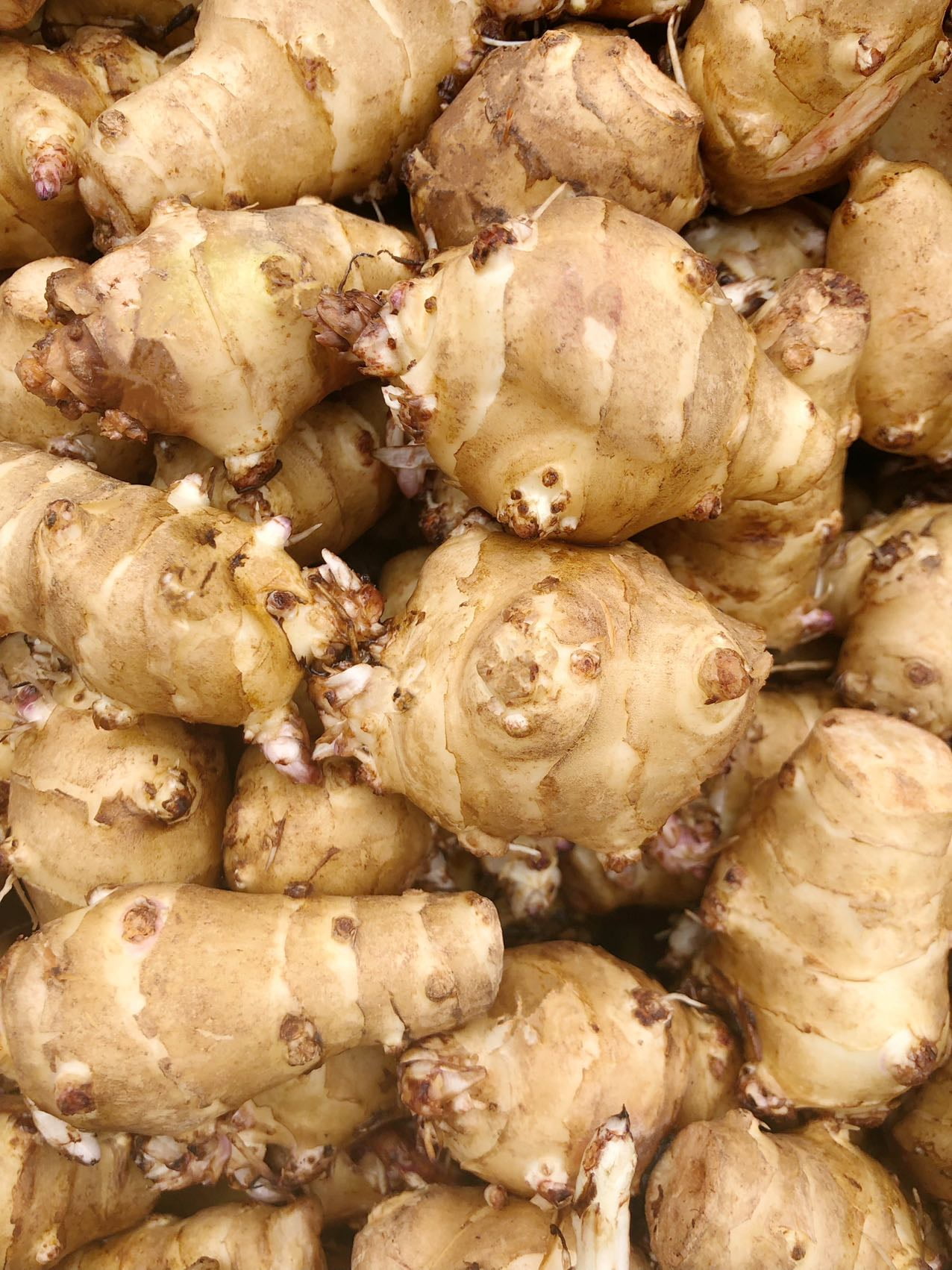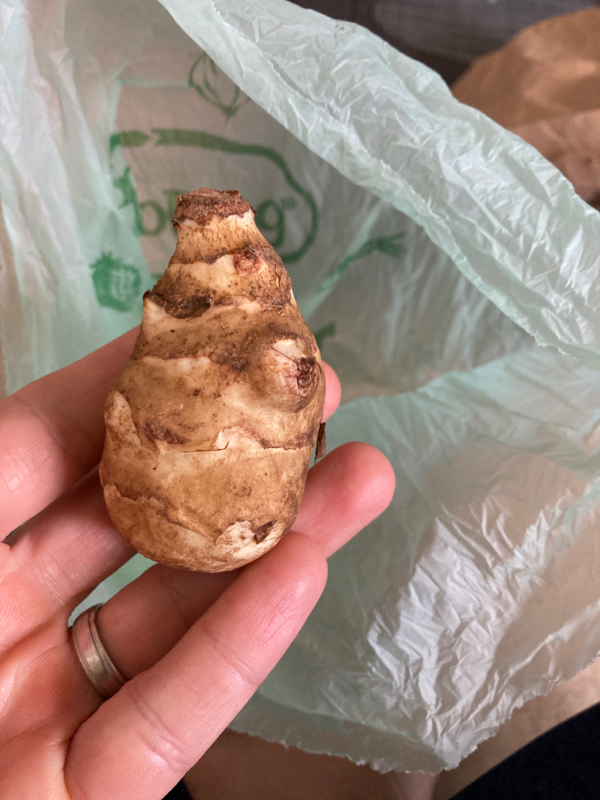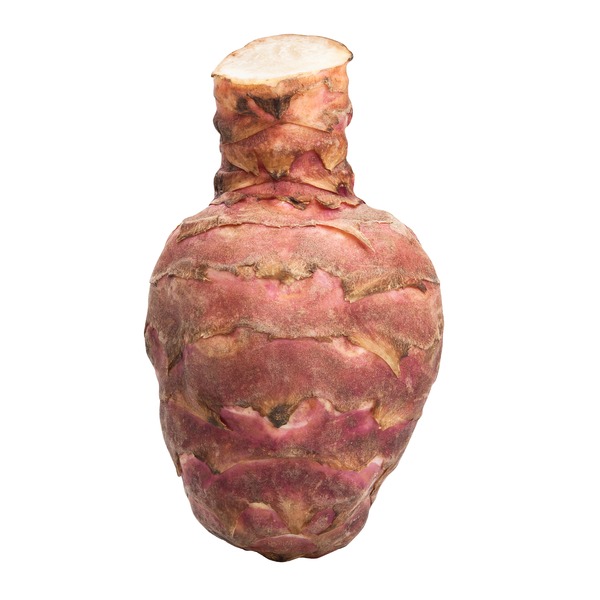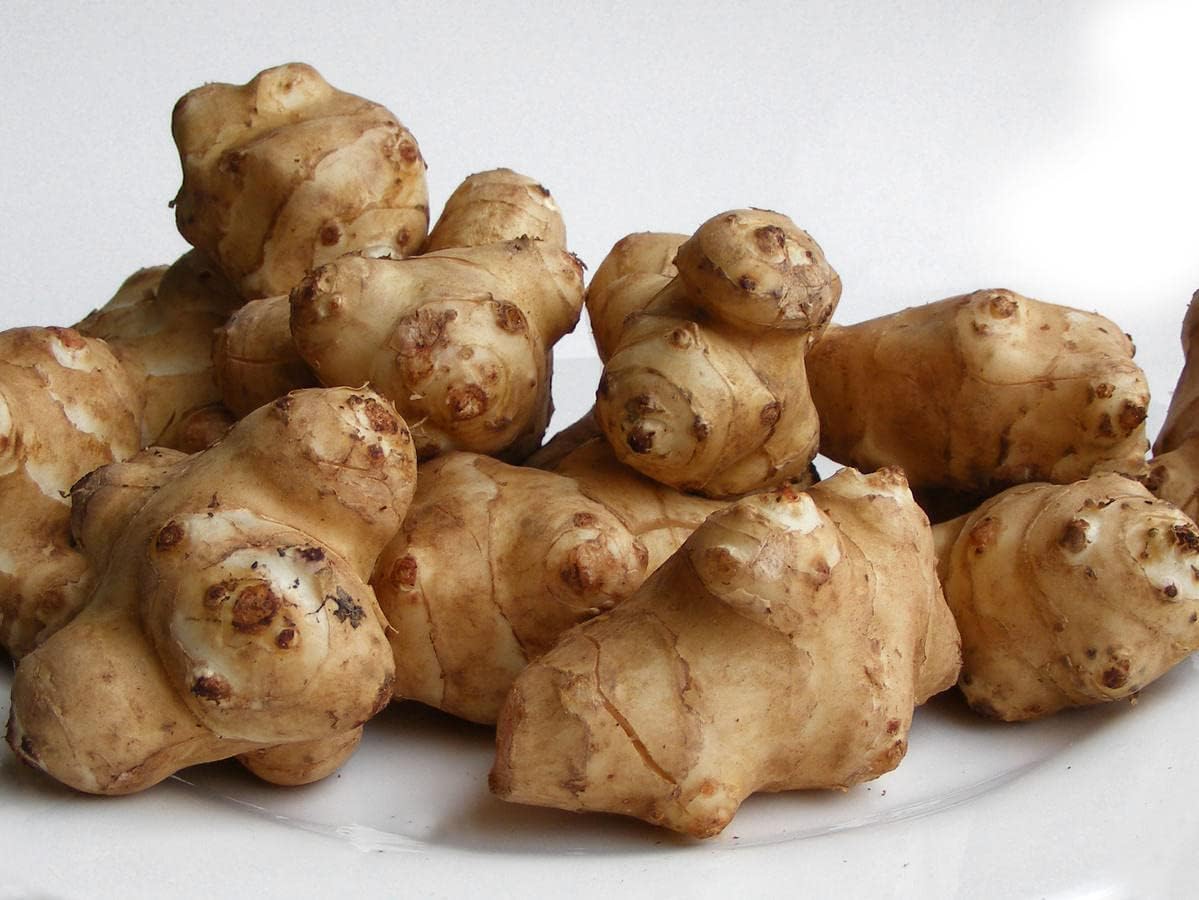SIDE DISHES
SALADS
SOUPS
Jerusalem Artichoke
The Jerusalem artichoke, also known as sunchoke or earth apple, is a perennial plant native to North America. This knobby, tuberous vegetable is known for its nutty flavor and crisp texture, and is a member of the sunflower family.
Jerusalem artichokes can be eaten raw, cooked, or pickled, making them a versatile ingredient in the kitchen. They are a good source of iron, potassium, and fiber. To create a healthy and delicious dish, you can roast, sauté, or purée them and include them in a variety of dishes like soups, salads, and side dishes.
90%
CARBS
0%
FAT
10%
PROTEIN
18 Jerusalem Artichoke Products
Sunchokes
Sunchoke
Fresh Tubers Jerusalem Artichokes for Planting OR Eating by Greenhouse PCA
Jerusalem Artichokes
Organic Sunchokes
Frieda's Sunchokes
10 Tubers Jerusalem Artichoke - Individual Tubers For Planting - AKA Sunchokes, Sunroot
Jerusalem Artichoke (Sunchoke)
Organic Sunchoke
25 Live Jerusalem Artichoke Tubers
Jerusalem Artichoke Is Frequently Used With
Jerusalem Artichoke FAQ
Jerusalem artichokes possess a nutty, slightly sweet flavor that can be compared to a potato, with a texture that ranges from crunchy (when raw) to creamy (when cooked). A common mistake people make is peeling the thin, edible skin off the artichokes, resulting in a loss of nutrients and fiber. To best enjoy and retain most nutrients in the Jerusalem artichokes, wash them under cool water and scrub lightly to remove soil, before proceeding with your desired cooking method. For those experiencing digestive discomfort after consuming Jerusalem artichokes, introducing this ingredient gradually into your diet can help your body adapt to its high inulin content. One lesser known trick is that roasting or slow cooking the tubers can help neutralize the inulin, reducing the risk of gastrointestinal upset.
Can you eat Jerusalem artichokes raw?
How do you cook Jerusalem artichokes?
Do Jerusalem artichokes cause gas?
Are Jerusalem artichokes good for diabetics?
What do Jerusalem artichokes taste like?
What can I substitute for Jerusalem artichokes?
Do I need to peel Jerusalem artichokes before cooking?
Is the green part of Jerusalem artichokes edible?
Can I grow Jerusalem artichokes in my backyard?
Can you eat Jerusalem artichokes skins?
Expiration & Storage Tips
When does jerusalem artichoke expire?
Fresh Jerusalem artichokes can last up to 2 weeks in the refrigerator if stored properly. Once cooked, they should be eaten within three days if refrigerated, and can last up to a year if frozen properly. When stored unopened in a can, they will remain good well past the printed expiration date (up to a year), but after opening, they should be transferred to a resealable container, refrigerated, and consumed within 3-4 days.
How do you tell if jerusalem artichoke is bad?
Spoiled Jerusalem artichokes usually develop dark spots, similar to potatoes. The texture could also change – they may feel soft or slimy, and could have a sour smell. Another sign of spoilage is the growth of molds. Do not consume if these signs are noticed, it's better to play safe and toss it out.
Tips for storing jerusalem artichoke to extend shelf life
• Store fresh Jerusalem artichokes in a cool, dark place, like a pantry, as soon as you bring them home. Place them in a paper bag to absorb excess moisture and ethylene gas, which can make them ripen more quickly.
• For a longer shelf life, store Jerusalem artichokes in the refrigerator’s vegetable crisper drawer, inside a perforated, plastic bag.
• If you've cooked Jerusalem artichokes, allow them to cool completely then store in an airtight container in the refrigerator. For a longer period, store in freezer-safe containers and freeze.
• For canned Jerusalem artichokes, always check the can before opening. If it's swollen, dented, or damaged in any way, don't use it. After opening, transfer any leftovers to a resealable container, refrigerate and consume within 3-4 days.
EXPIRES WITHIN
11 - 21
DAYS
Substitutes
Health Info
Macros
26g
CARBS
0g
FAT
3g
PROTEIN
Allowed on these diets
LOW FAT
HIGH CALCIUM
VEGETARIAN
KETO
PALEO
WHOLE 30
MEDITERRANEAN
LOW CARB
VEGAN
LACTOSE FREE
GLUTEN FREE

